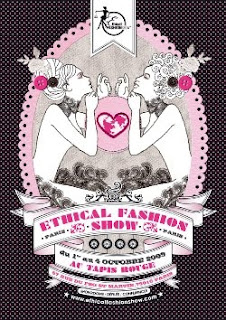| NEWS REPORT / FINANCIAL EXPRESS |
Indian Government to put Organic Chain Tracking Online
The Government of India plans to launch a comprehensive web-based traceability software to trace operations from farms to consumers online called TraceNet. The software has been developed by Agricultural and Processed Food Products Export Development Authority (Apeda) and would boost the existing certification system for the export of organic products, according to a report in the Financial Express.
 In 2008-09, India produced more than 1.6 million tonne of certified organic products, of which 10,887 tonne was organic cotton which makes it the largest organic cotton producer in the world. The country exported around 44,476 tonne of organic products in 2008-09, valued at $116 million.
In 2008-09, India produced more than 1.6 million tonne of certified organic products, of which 10,887 tonne was organic cotton which makes it the largest organic cotton producer in the world. The country exported around 44,476 tonne of organic products in 2008-09, valued at $116 million.The system would help in maintaining authentic and updated production, certification and export data of organic products online. The traceability software would also have details about farmers and locations and importing countries could track every aspect of the products.
The demand for the organic products such as tea, spices, honey, basmati rice, coffee, cereals, dryfruits, vegetables, garments and medicinal plants have been growing in the recent years as consumers’ preference for green products has been steadily on the rise particularly in Europe, US and other developed countries.
India has put in place standards including norms for organic production and processing, accreditation criteria for certification bodies and norms for the farmers’ group certification for small farmers.
The European Commission and the US, key export destinations for country’s organic product, recognise NPOP standards, due to stringent standards in place. India is the first Asian country to get recognition from EU and Switzerland for equivalence and by US for conformity assessment.
Currently, India ranks 33rd in terms of total global land under organic cultivation. India exported 86 items in 2007-08 having a total volume of 37,533 tonne. The export realisation was around $100.4 million, a growth of 30% over the previous year. Cotton, honey, basmati rice, tea and processed food are the major constituents of the Indian organic food basket.










